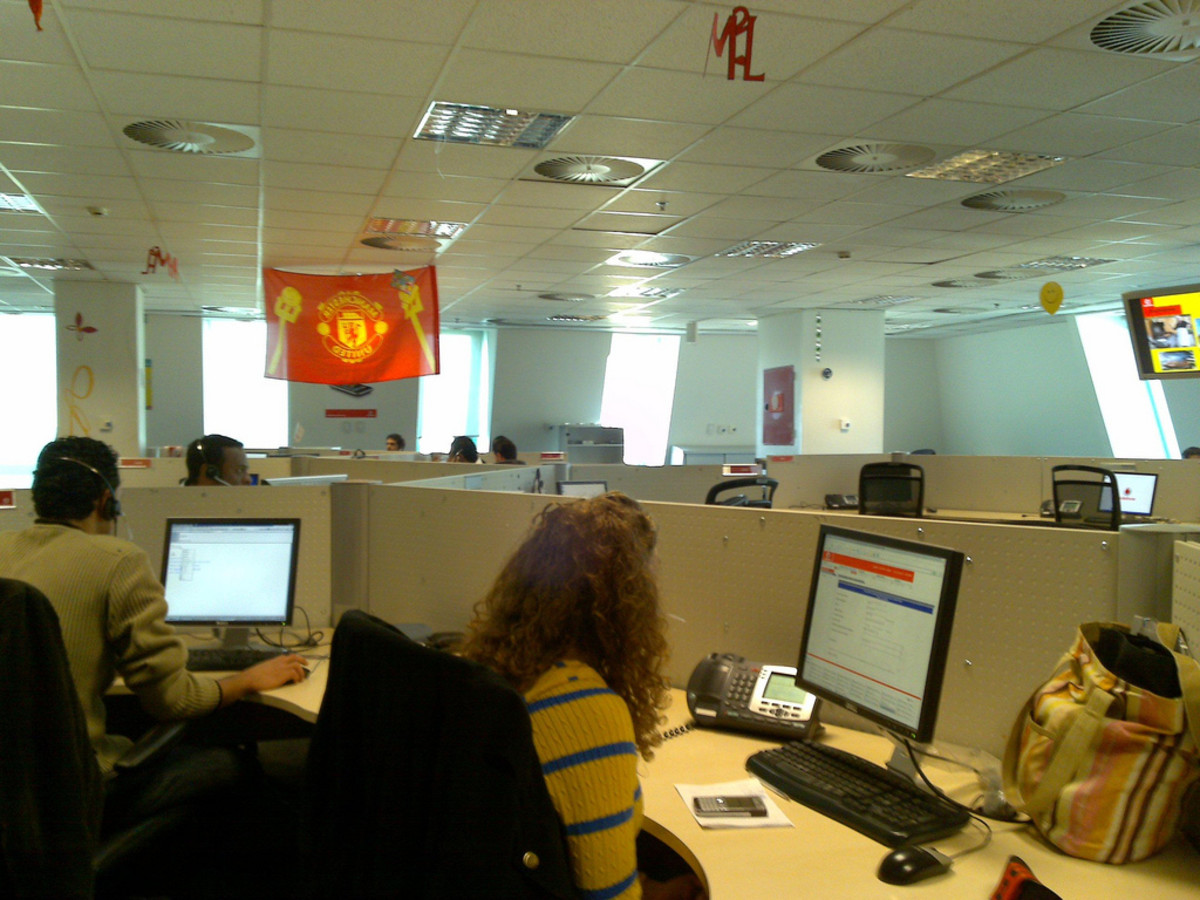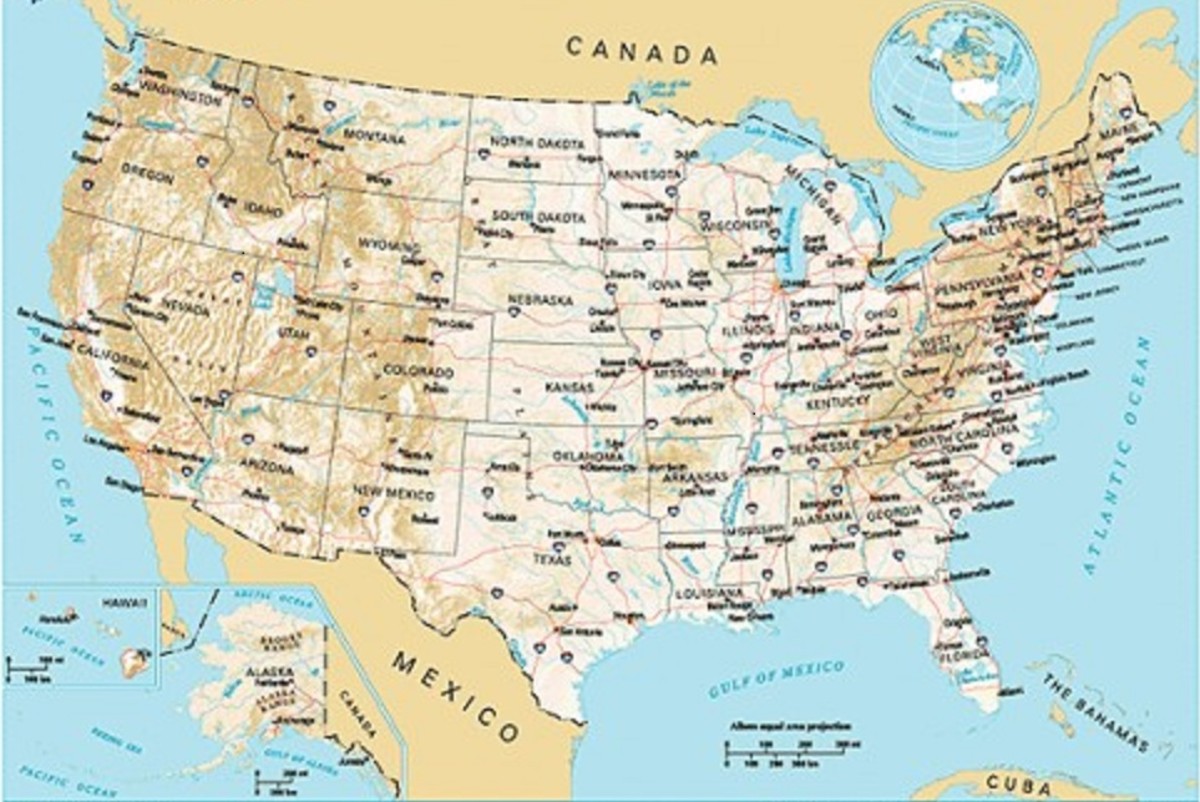Nate's Work Place Survival Guide: The Intro and The Interview
The Intro
I know what you're thinking. Why should I read yet another cut-and-paste how-to guide on how to get and keep a job? What makes this one different from millionth xeroxed copy of a hand out that was written in 1987 for a group of recovering drug addicts with life lessons that are just as relevant today? Well I'll give you two reasons why you should read my guide.
One: I believe I've experienced some things that those hand outs don't begin to cover. Why would you listen to some faceless cypher talking to you from ten years ago when you can come this website, locate my contact info and at least question me directly on some of the points I've made? At least my experiences change with the times whereas the out-dated info I've referred to probably has very little, if any relevance in a modern world essentially ruled by new technology and blanket regulations.
Two: To quote Captain James Tiberius Kirk, “Because it's There.”
The Interview
You can't survive in the workplace if you aren't a part of the workplace. And so there is no point in the career more crucial than the Interview.
Some will argue that the resume is the most important factor. I beg to differ, because as you will read in a later chapter, resumes and applications can and sometimes are fudged ever so slightly. Basically the resume is like the pictures in a menu at a restaurant. The food rarely ever looks the same when you get it, so you damned well better be impressed by how it tastes or the restaurant is going to lose a customer. Similarly, your prospective employer had better be impressed by you, since you will be nothing like the picture he has in his head.
The first and most obvious step in the interview process is remembering the day and time of your interview. Well, duh, you say. But how cocky are you going to be when you show up half an hour late? Or when you think the interview was on Saturday instead of Friday and instead of calling to verify you walk in on the wrong day. Trust me. Write it down on a piece of paper, preferably a calendar, or leave yourself a voice message. Heck, most cellphones come with day planners which has been a real life saver for writing my schedule down, but I digress.
So you have the time down. You know you won't be late. How are you going to get there? Well, if you're like me and you don't drive your options are limited to walking, getting a ride from a friend or family member, or partaking in the miracle that is public transportation. The choice is up to you but there are pros and cons to each.
With walking, you really need to give yourself plenty of time to get to the interview on time. If you have a good amount of distance to travel you don't want to be in such a rush that you exhaust yourself. At the same time this gives you a chance to gage just how long it will take to get from your home to the job.
The downside of course is that extreme weather makes dressing to impress a little harder to pull off. Sweat stains and the smell of body odor that can occur while walking uphill or in the hot sun are big turn offs at an interview. Not to mention the hazards you'll come across during the winter months and heavy rainfall. Keep an umbrella handy on days that look even slightly overcast and of course bundle up in extreme weather.
When it comes to getting rides from family and friends it's very important to emphasize that you need to get to this interview on time. If the friend you're asking is fitting you into a to-do list with your needs being at the very bottom of that list, it may not be a good idea to rely on him. And if your mother is the kind of person who knows about fifty different “short cuts” to your destination you could wind up getting to the interview with seconds to spare, if any at all.
That of course brings us to public transportation, which generally involves taxi cabs, buses, and trains, with the later two being the more reliable.
Public trains are generally the least expensive way to get where you need to go and usually offer a brief, if crowded reprieve from bad weather. And, though it's different with every city, the passes you can buy for a train can usually be used on the public bus system as well, so long as they are run by the same company.
So, we've gone over our options for getting you there. Now how early should you arrive? Be careful because showing up too early is as bad as showing up late. The human resources manager or whomever is conducting the interview will likely have other things on their plate in addition to your interview. So for courtesy's sake the earliest you should arrive is about fifteen minutes tops. This gives you a chance to get a drink of water, use the restroom, and do whatever it is you have to do to prepare yourself for this big step.
Now, if you interview well then you probably don't even need this advice. But lets assume that you're lousy in an interview and that this short coming has cost you some really good opportunities. Well practice makes perfect and the best practice in this case is simple trial and error.
I've made mistakes that would embarrass me if I made them again. Rather than bore you with all of the details I'm going to sum up the three biggest mistakes I feel cost me major opportunities in the past.
1: Talking too much
There are two job interviews that come to mind. The first one was a teacher's assistant position at the United Counseling Service's daycare in Bennington, Vermont.
The director was an older woman and she knew what she was doing. She asked me a lot of technical questions such as, “What would you do if a child runs away from you?”
Now, I had experience working in a daycare. But something about this woman's demeanor really made me feel like I was under the microscope.
“Well,” I replied. “I wouldn't chase him at all. Because I know he's playing with me, right. And I wouldn't want to encourage him, so I would do what my parents do and pretend to not notice it so that he would think I'm not interested and he'd come back.”
That was heavily paraphrased of course but it's about the size of the answer I actually gave. Obviously I would not just stand there because if that little kid runs into the road I'm going to bolt after him regardless. But again the director made me feel like every question was a trick question and that no answer I gave would be the right one.
Sometimes you will get an interviewer who doesn't buy the image. They will throw you off with questions like that because frankly, they have no intention of hiring you and maybe they're amused by your uneasiness. But let me just bring up an interview where that wasn't the case.
A few years later I was living in Burlington, Vermont and I applied for a job at the Howard Center, which is an organization that helps people with severe mental and physical handicaps and their families. The interviewer hit me with a similar question.
“Lets say you are with a woman who is mentally challenged and she wants to buy a candy bar at the store. She chooses two, but she only has enough money for one. You're at the register and a line is behind you. How do you handle it?”
Without trying to paraphrase the exact responses I gave, let me just say that there were about six responses and they were all as wordy and as uncertain as that answer I gave at the daycare several years earlier. Fortunately the interviewer smiled and asked me the same question. I told her I didn't know.
Coming clean and letting her know that I was stumped turned out to my advantage. She gave me the answer and it made sense to me.
The only reason I didn't get the job I was after is because I didn't have a driver's license however I was offered a position as a substitute, which I didn't go for because I needed something steadier.
The lesson here is to try to keep answers to a few sentences minimum. Answer as honestly as you can, don't stammer and if you don't seem to know the answer the interviewer wants than be honest about that as well.
2: Not Talking at All
During an Interview at EB Games the manager left the room and had his assistant sit with me. The assistant didn't ask me any questions so I sat there assuming the manager would return. Little did I know that I was basically being tested to determine my sociability. Since EB Games and Gamestop are mostly about the sales, communication with customers is key.
Silence is golden at times but it can kill you in the end. Use your judgment. You can talk too much or not talk at all. But one way or the other it's not the interviewer that needs the job.
3: And this is big...
We all get frustrated. Just let it be known that there is a fine line between being too honest and being just honest enough to prove you're someone with integrity. You will be asked this question. And however you answer it will determine a lot about your future with the company/retail outlet, etc.
“Where do you see yourself in (Insert number of years here)?”
I was applying for a janitor's position at an Old Navy when the District Manager asked me this gem. And this, mind you, was the umpteenth in a long line of applications I had filled out. Sometimes the job market in your area is just that bad or the people hiring don't know what they're looking for. But the point is I was frustrated. So my reply was clearly not what the DM wanted to here.
“Well, if I don't get this job,” I said, in the most sincere sounding voice that I could muster. “I see myself [on the street just outside] begging for change.”
Needless to say that was probably the clincher for me. I didn't get called in to mop the floors every morning for four days a week. I guess they wanted to know where I planned to take my janitorial skills, but that's a story for another day.








